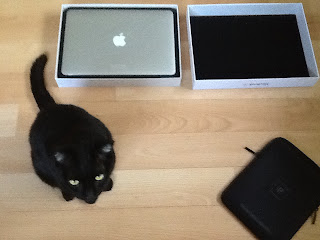 |
When I was a child, I dreamt of becoming an author and being published by Penguin. (Yes, I was an odd child, but that's a post for another day!) Even after I was stripped of my illusions about the publishing industry the name "Penguin" stood out for me as the mark of something special.
No longer.
If you haven't read David Gaughran's article on Penguin's purchase of Author Solutions you should. It gives all the facts and in David's succinct and eminently readable style. Here's an excerpt:
Penguin’s parent company, Pearson, has announced the purchase of Author Solutions for $116m – news which has shocked writers, especially given Author Solutions’ long history of providing questionable services at staggering prices.David gives examples a-plenty to back up his claims. Author Solutions is well known on sites like Writer Beware and Predators and Editors. The news that Penguin purchased the company astonishes me. I can only hope that Penguin discontinues Author Solutions' bad business practices and works with authors instead of preying on them.
Author Solutions are the dominant player in the self-publishing services market – via their subsidiaries Author House, Xlibris, Trafford, and iUniverse – and had been looking for a buyer for several months. According to the press release, Author Solutions will be folded into Penguin, but will continue to operate as a separate company. Penguin’s CEO John Makinson stated:
“This acquisition will allow Penguin to participate fully in perhaps the fastest-growing area of the publishing economy and gain skills in customer acquisition and data analytics that will be vital to our future.”
What does Author Solutions bring to the table? Well, for starters, around $100m in annual revenue. Roughly two-thirds of that money comes from the sale of services to writers, and only one-third from the royalties generated by the sale of their books.
Pause for a moment and consider that statistic. Penguin isn’t purchasing a company which provides real value to writers. They are purchasing an operation skilled at milking writers.
This is not a new accusation against Author Solutions. Industry watchdogs such as Writer Beware have received a litany of complaints about Author Solutions and their subsidiaries over the last few years: misleading marketing, hard-selling of over-priced services, questionable value of products provided, awful customer service, and, after all that, problems with writers being paid. (Penguin’s New Business Model: Exploiting Writers)
Related reading:
- Writers Sue Harlequin For Underpayment
- Publish America: Writer Beware
- Jen Talty: Amazon's CreateSpace Vs LIghtning Source (Not about a scam, just a comparison of two good companies)









